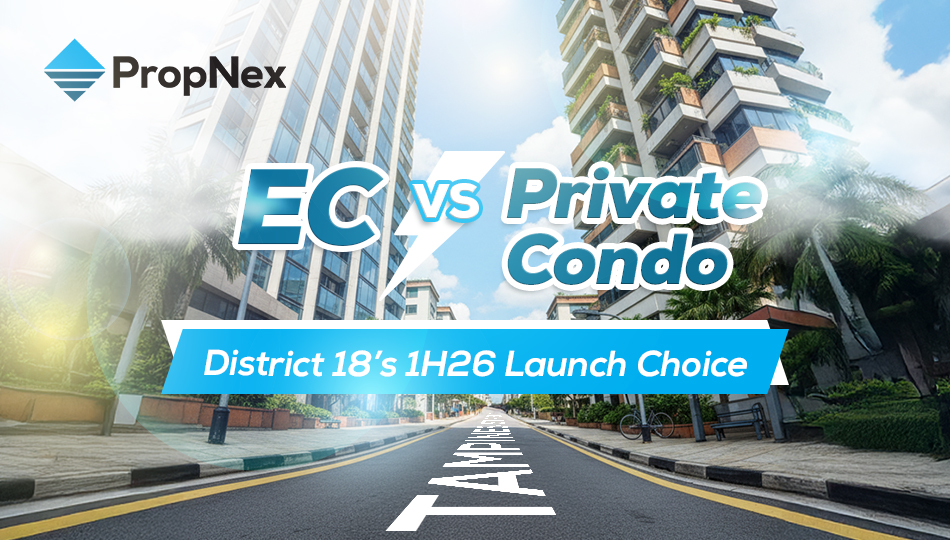PropNex Legal Brief: The Leasing Code Of Conduct Is Now Law. Are You Affected?
Are you a budding gastronomy extraordinaire? A first-time landlord (“LL”) excited to rent out your conserved shophouse? Or a trendy t-shirt designer selling your masterpieces via a push cart? If you are, are you affected by the Code of Conduct for Leasing of Retail Premises (“Code”)?
More than a year has passed since the primer on the Code was published on 7 September 2022, and the Code came into force on 1 February 2024[1]. This article will highlight points under the Code which will play a significant part in the negotiation and entering into a lease agreement between landlords (“LL”) and tenants (“TT”), and also renewals and novation (e.g. the transfer of both the rights and obligations under a contract to another party).
We will first deal with the six basic points, before we go into Principles and points which “deviate’ from common industry practice before 1 February 2024, and positive/active actions or obligations on the part of the LL and TT.
Six basic points to note
The starting point will be whether the property is a retail premises (sale of goods and supply of services),[2] and if yes, is the new lease, renewal or extension, for a period of one year or more? If it is one year or more, it will be a qualifying lease (“Qualifying Lease”) and the Code will apply. If it is less than a year, it will not be a Qualifying Lease and the Code will not apply to the lease.
The second point to note is the “exception” for renewals which is one year or more, where the Code will not apply. This exception applies to tenancy agreements (“TA”) which has an Option to Renew which provides that renewal will be based on the same terms and conditions of the expiring TA. The renewed term of such TA need not comply with the Code.
The third point to note is the 13 Principles under the Code which will apply to the conduct of parties during negotiation and also the drafting of the TA of a Qualifying Lease. Of the 13 Principles, all are compulsory except four Principles which can be deviated by mutual consent, and one Principle which is discretionary.
The fourth point to note is the four Principles which can be deviated which are Principle 1 (Exclusivity), Principle 5 (Sales Performance), Principle 8 (Security Deposit), and Principle 11 (Rental Formula). The LL and TT can mutually agree to deviate from these Principles, and a Joint Declaration of Deviation must be filed.[3] A fee of $100 (excluding GST) is payable for each deviation.
Fifth will be Principle 6 (Material Adverse Change) which is discretionary (i.e. parties can agree between themselves whether or not to include this Principle in the TA) and sixth will be the other eight Principles which are compulsory and must be complied with by the parties.
“Deviation” from common industry practice before 1 February 2024
It is common practice for TT to bear all legal costs in the preparation of the TA. Principle 2 now provides clear principles on who is to bear the administrative costs OR legal fees. If the TA is Code compliant and no amendment to the terms is required, the LL must not charge TT any administrative or legal fees.
The other Principles are:
(a) If Party A requests to add clauses (which are not applicable) in a Code compliant TA, Party B can require Party A to pay Party B’s administrative or legal fees.
(b) If Party A requests for amendment to make a non-Code compliant TA compliant, Party A can require Party B to pay Party A’s administrative or legal fees.
(c) If Party A requests for ancillary documents including side letters, variation letters, settlement, novation supplemental and surrender agreement, Party B can require Party A to pay Party B’s administrative or legal fees.
Next, if public liability insurance is required to be purchased, the coverage limit must not be more than $3 million OR more than the LL’s public liability insurance, whichever is lower. This means that if the LL’s coverage is $2 million, the TT’s coverage shall not exceed $2 million. If LL’s coverage is $4 million, the TT’s coverage shall not exceed $3 million. This requirement does not apply to retail premises which have a floor area of more than 15,000 square feet.
The gross rent of retail premises often consists of base rent and different components such as advertising and promotion charge, and service charge. The increase in such components will result in an increase of the gross rent. Principle 3 of the Code changes this when it provides that any increase in such components must not increase the gross rent.
Next, it is not common for TAs to have clauses allowing TT to pre-terminate the TA. Should there be one, the circumstances for termination will often be limited and narrow. The consequences for such termination will also often act as a deterrent, with heavy compensation to be paid by the TT.
LL and TT of Qualifying Lease must now comply with Principle 4 and Principle 7 respectively for early termination of the lease if the LL or TT requires such a right to terminate. Both Principles provide clear grounds, as well as consequences for early termination.
Principle 4 allows LL to pre-terminate a TA due to redevelopment works i.e. substantial redevelopment, asset enhancement, reconfiguration works which requires TT to vacate the retail premises for the works to be carried out. Pre-termination is not allowed if the reason is to change tenant mix.
Principle 7 allows pre-termination by TT under two circumstances. First, will be the business principal of the goods and/or services from which the TT has obtained the rights to sell or provide becomes insolvent. Second, the TT loses the distributorship/franchise rights to the goods or services BUT not due to the TT’s breach, default or non-performance.
For security deposit, Principle 8 provides a cap of three months’ gross rent for retail premises with a floor area of up to 5,000 square feet and with a lease term of up to three years. The LL is also required to allow the TT to pay up to 50% of the security deposit in non-cash payment. This will be covered in the next part.
Before 1 February 2024, TAs rarely have any provisions to deal with difference in the floor area and surveyed floor area. Principle 9 covers this gap by providing Principles on how to resolve such situations i.e. when the floor area is smaller than the surveyed floor area and vice versa. Principle 9 also imposes a positive obligation on the LL, and this will also be covered in the next part.
Positive/active actions and obligations
As mentioned above, the TT can pay the security deposit via non-cash mode under Principle 8. This however, is not an automatic right, and the TT must notify the LL upfront prior to the signing of the TA of this intention. The LL will have the right to choose the type/format of the non-cash mode.
Principle 9 requires the LL (in a new letting of retail premises with a floor area which is more than 300 square feet) to provide to the TT a certificate from a registered surveyor confirming the surveyed area of the retail premises prior to handover (or such later date as the LL and TT may agree). LL and TT can also mutually agree to accept certified floor plans or building plans from relevant authorities (i.e. HDB, URA, BCA) instead of a registered surveyor’s certificate.
Last but not least is the obligation of the originator of the TA (i.e. the creator of the TA) to provide together with the first draft of the TA a duly filled up Checklist referred to in paragraph 1.1. of Part D of the Code. This Checklist functions as a self-check tool for the originator to ensure that the TA is Code compliant, and where applicable, any deviation of Principles 1, 5, 8 and 11 have already been negotiated and agreed upon with the other party.
Take-aways
If you are a LL or TT of a retail premises covered by the Code, knowledge of the Code is important because any non-compliance may result in the aggrieved party reporting the other to the Fair Tenancy Industry Committee (“FTIC”). As the custodian of the Code, FTIC will monitor the incidence of non-compliance, and if a party has been frequently or regularly reported, the FTIC may require that party to provide justifications for the non-compliance.
Such disputes and escalation to the FTIC is best avoided because any seasoned LL or TT will tell you that a good and lasting relationship between LL and the TT is as important as good and consistent rental yield for the LL and “ong” place to do business for the TT. It is therefore very important for parties to start on a good and correct footing, in order to build and maintain a long term and productive partnership.
For customers of PropNex, we have reviewed our transaction forms in order for them to be Code compliant, and trainings have also been conducted for PropNex agents to equip them with “What they must know”, “What they must do”, and the support which we are able to provide to them when dealing with a Qualifying Lease.
About the writer
Heng Eam joined PropNex Realty Pte Ltd in March 2021, and is presently the Assistant Director of PropNex’s Legal and Compliance Department. A lawyer by training, he was called to the Malaysian Bar in 2005. From 2007, he practiced law in Singapore for several years before being called to the Singapore Bar in 2014. He then served as legal counsel for another real estate agency, from 2015 till 2021. Besides his specialisation in litigation, he also provides legal counsel for corporate regulatory issues such as the Personal Data Protection Act (PDPA), as well as advises clients on employment, property, and landlord and tenant disputes.













